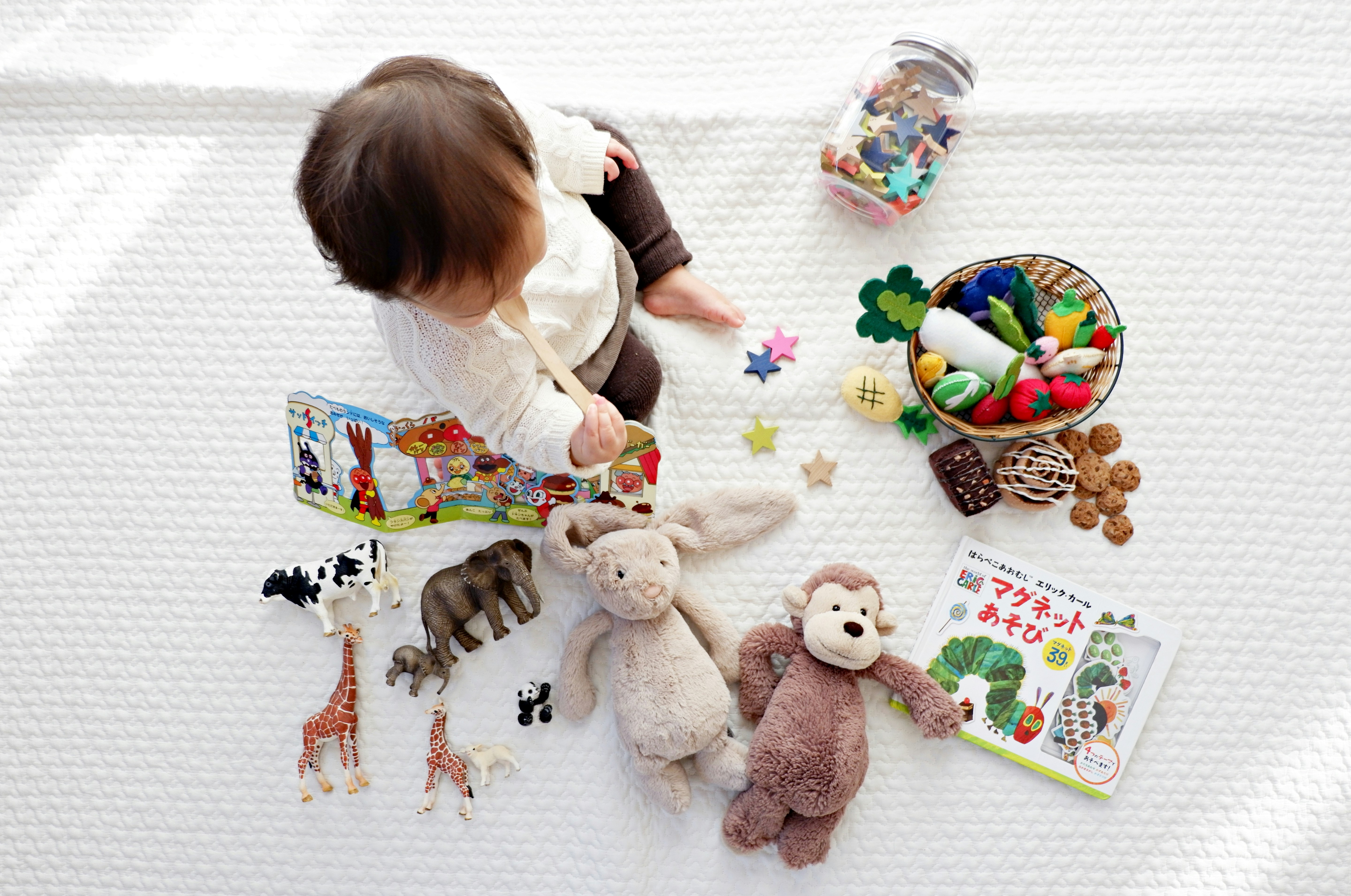How can play become accessible and sustainable?
Published: 22 Apr 2024

Let's Play
American poet and author Diane Ackerman has a nice saying - “Play is the brain’s favourite way of learning”.
As every parent or carer also knows, toys are flippin expensive! Even ones that cost quite a bit can be consigned very quickly to the ‘I’m bored of that’ pile and then spend the next few years gathering dust until maybe they get used again by another child or sold at a car boot sale or given to charity. But many more will simply end up in the bin at some point.
And there’s the ‘plastic tatt’ worry. How much oil has been used to produce the plastic that makes the stuff that gets used for a few weeks and then forgotten about? How many toys are languishing in landfill sites? How many have ended up in an incinerator?
Wouldn’t it be nice if we could save a bit of money, reduce the number of toys we buy and the amount of toys going to landfill and, at the same time, help reduce, even in a small way, some climate emissions.
Enter Toy Libraries!
Not a new concept by any means, but rather depressingly, still quite rare.
What's a Toy Library?
It does what it says on the tin really: it’s a library for toys rather than books. And it’s not new at all. In fact, Jill Norris set up the first of its kind in the UK in Enfield (north London) in 1967. And their history goes back a lot further. The first one anywhere was in LA, set up in 1935. The idea for it started the previous year during the Great Depression.
A toy library can provide local families a range of fun and educational toys, puzzles, games etc to borrow or hire for a minimal fee.
Benefits
Toy libraries can
-
give children access toys that they might otherwise not encounter due to cost or even space limitations at home.
-
save families lots of money by enabling them to borrow toys each week rather than buying them. This is obviously particularly welcome in these times where the cost of living has gone through the roof.
-
help spark a child’s imagination! A wide variety of toys can enable them to have a greater range of play experiences that contribute to their development.
-
act as a community hub, bringing parents and carers of young children together. Some toy libraries are held in existing community spaces where there is a possibility for parents to grab a cuppa and chat to other parents. This in itself can help create lasting friendships and community connections.
-
help prevent clutter! As kids work their way through more and more toys, games, puzzles etc, homes can get more and more cluttered. Simply borrowing or hiring some toys can help reduce some of this clutter on an ongoing basis. Very welcome for all us parents!
-
And, of course, they also help (even if it’s only just in a relatively small way) reduce our use of plastic, reduce the amount of stuff going to landfill and reduce some climate emissions.
Toys and plastic
To put this into context, worldwide, we currently produce more than 350 million metric tons of plastic waste per year. And if we don’t address this, it is predicted to triple by 2060, to a staggering one billion metric tons.
With most plastic being made from oil, it is estimated that unless we do something about it, by 2050, plastic could account for around 20% of all global oil consumption.
Quite clearly toy libraries won’t address the entire problem but they do have a part to play and as they are also good for our wallets and for communities then they surely merit a place in the Welsh circular economy.
What would we like to see in Wales?
Welsh Government has many initiatives to support the ‘circular economy’.
A circular economy is basically trying to get to the stage where everything is either not produced in the first place, or if it is, then it is made in a way that it can be repaired, reused, upcycled, recycled, composted etc and so nothing ends up getting chucked away. Schemes like Repair Café Wales or Benthyg Cymru (Library of Things) are brilliant examples of how we can reduce the amount of stuff we use and throw away, and they have the added benefit of saving people, families and communities, money. A real win-win situation.
For Wales to truly become a zero-waste nation, we will also need other initiatives to be introduced. We can’t rest on our laurels and think that everything that can be done, has been done. It hasn’t.
In terms of the share economy, things like nappy libraries, community paint and wood recycling schemes and toy libraries can help.
As mentioned above, toy libraries have their part to play in reducing waste, reducing plastic use, reducing climate emissions and also saving parents and families money.
Welsh Government already has a focus on a child’s ‘right to play’, and, with a variety of new recommendations and proposals coming from a review, we hope that Toy Libraries will find a place now in Wales.
We would like to see Welsh Government work with all relevant groups in Wales to introduce a nationwide network of toy libraries.
Sign our petition
We are calling on the Welsh Government to introduce a national network of toy libraries. Sign our petition here

